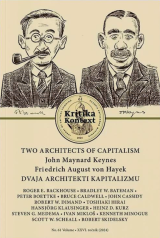Spinoza’s rationalist philosophy was central to the “radical” Enlightenment of late seventeenth century Europe and a century later had a decisive impact on the development of German Idealism. At the beginning of the twentieth century, his critique of revealed religion was the focus of heated discussions among Jewish thinkers; and in the 1960s Marxist philosophers, including Althusser, saw Spinoza’s understanding of the imagination as a forerunner to the concept of ideology. This strand of his thought was taken a step further by Hardt and Negri in their highly influential work Empire, while most recently António Damásio has argued that there are significant affinities between Spinoza’s psychology and contemporary discoveries in neurophysiology.In the following interview, leading Spinoza experts discuss the seventeenth-century philosopher’s relevance today.
Warren Montag
is Professor of English and Comparative Literature at Occidental College in Los Angeles, California. His publications include Louis Althusser (2002) and Bodies, Masses, Power: Spinoza and his Contemporaries (1999).
